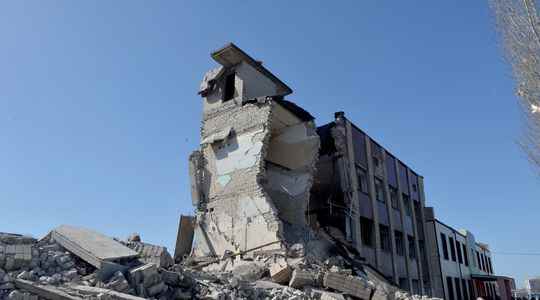On the 30th day of the Russian invasion, Friday March 25, US President Joe Biden travels to Poland, to a town near the Ukrainian border, standing at the forefront of Western engagement against the invasion launched by Moscow, which looks more and more like a war of attrition. In Ukraine, the situation in the city of Mariupol, on the Sea of Azov, heavily bombarded, is deteriorating further, the Ukrainians denouncing the “mass” deportation of inhabitants to Russia.
NATO “response” if Moscow uses chemical weapons
NATO will respond if Russia uses chemical weapons in Ukraine, US President Joe Biden pledged for the first time on Thursday. “We will respond if there is recourse. The nature of the response will depend on the nature of this use,” Biden said after the NATO and G7 summits in Brussels.
He is going to Poland this Friday in the town of Rzeszow, about 80 kilometers from the border with Ukraine at war. French President Emmanuel Macron for his part refused to specify whether NATO had defined “red lines” likely to trigger an intervention.
Chemical and nuclear threats: NATO equips Ukraine
NATO will provide Ukraine with protective equipment against chemical, biological and nuclear threats, announced the Alliance’s Secretary General. Four new battlegroups will be deployed in Romania, Hungary, Bulgaria and Slovakia to strengthen NATO’s defenses on its eastern flank.
More than 100,000 American soldiers are currently present in Europe and more than 40,000 soldiers are under direct NATO command in the eastern part of the Alliance. The Ukrainian president accuses Russia of using “phosphorus bombs”. And for him, “the risk of large-scale use of chemical weapons by Russia in Ukraine is very real”.
Risks of food shortages
Westerners have come together to respond to the risk of global food shortages, with Ukraine and Russia being two major wheat exporters. “Food shortages will materialize,” warned the American president after G7 and NATO summits, assuring that the United States like Canada would increase their exports accordingly.
The United States has announced that it will devote 11 billion dollars (about 10 billion euros) over the next five years to respond to threats to food security in the world, while France has proposed an emergency plan at EU and G7 level.
Deadly bombings
At least five people died, including two children, and six others injured in Russian strikes near Lugansk (east), said the governor of the region. In Kharkiv, at least six civilians were killed and 15 others injured in a bombardment, according to the regional governor. The strike hit a post office near which local residents were receiving humanitarian aid, he said, denouncing a new “crime of the Russian occupiers”.
In addition, the International Atomic Energy Agency (IAEA) expressed Thursday evening its “concern” after being informed by the Ukrainian authorities of the bombing of the city where the staff of the Chernobyl site live.
